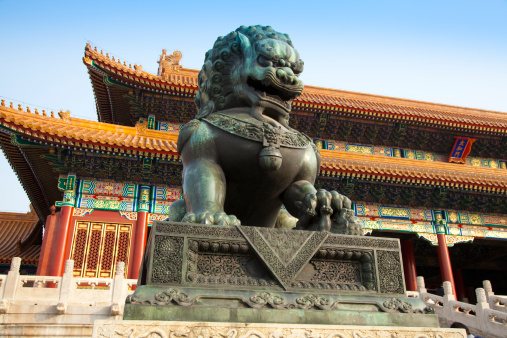Banking, finance, and taxes
China’s Central Bank Tells Country’s Banks to Shape Up
Published:
Last Updated:

Over the weekend the PBoC released a statement dated last Monday in which it said that liquidity was sufficient and encouraged the country’s big lenders to do a better job of managing their balance sheets. On Friday, the bank reportedly injected a more cash into the economy.
According to the Financial Times, the PBoC cited a number of technical factors for the zooming lending rates, but also cautioned the nation’s banks:
Banks must “be prudent in managing the liquidity risks that may arise from an overly fast expansion of loans and other assets”, [the PBoC] said. “Amid volatility in market liquidity, banks should make timely adjustments to their asset structures.”
If the central bank is serious about tightening banks’ lending practices, already lowered projections for growth in the Chinese economy could be pushed even lower. Goldman Sachs Group Inc. (NYSE: GS) this morning lowered its fiscal year GDP growth estimate for China from 7.8% to 7.5%, citing the tighter credit conditions. The investment bank also lowered projections for 2014 from 7.8% to 7.4% and for 2015 from 8.4% to 7.7%.
The PBoC’s capital requirements on the country’s largest banks are very high (20%) due mainly to the need for the central bank to sterilize the huge inflows of capital into China. The PBoC regularly has injected liquidity into the system to help these banks that are approaching their loan-to-deposit limit. When the PBoC stops the injections, no bank trusts any other bank. Probably because they know what their own balance sheets look like and would not lend money to themselves.
After two decades of reviewing financial products I haven’t seen anything like this. Credit card companies are at war, handing out free rewards and benefits to win the best customers.
A good cash back card can be worth thousands of dollars a year in free money, not to mention other perks like travel, insurance, and access to fancy lounges.
Our top pick today pays up to 5% cash back, a $200 bonus on top, and $0 annual fee. Click here to apply before they stop offering rewards this generous.
Flywheel Publishing has partnered with CardRatings for our coverage of credit card products. Flywheel Publishing and CardRatings may receive a commission from card issuers.
Thank you for reading! Have some feedback for us?
Contact the 24/7 Wall St. editorial team.